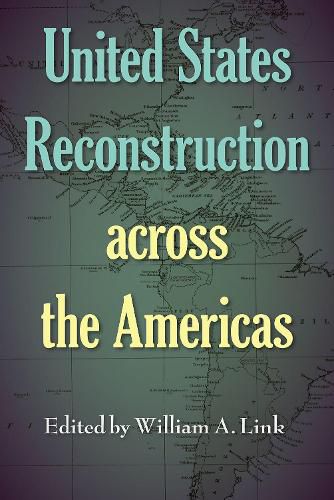Readings Newsletter
Become a Readings Member to make your shopping experience even easier.
Sign in or sign up for free!
You’re not far away from qualifying for FREE standard shipping within Australia
You’ve qualified for FREE standard shipping within Australia
The cart is loading…






This title is printed to order. This book may have been self-published. If so, we cannot guarantee the quality of the content. In the main most books will have gone through the editing process however some may not. We therefore suggest that you be aware of this before ordering this book. If in doubt check either the author or publisher’s details as we are unable to accept any returns unless they are faulty. Please contact us if you have any questions.
Historians have examined the American Civil War and its aftermath for more than a century, yet little work has situated this important era in a global context. Contributors to this volume open up ways of viewing Reconstruction not as an insular process but as an international phenomenon.
Here, three leading international scholars explore how emancipation, nationhood and nationalism, and the spread of market capitalism?issues central to the period in the United States?were interwoven with global patterns of political, social, and economic change. Rafael Marquese explores the integrated trajectories of slavery in the United States and Brazil, tracing connections between the coffee and cotton economies of both countries. Don Doyle discusses how Mexico’s Maximilian regime harbored Confederate exiles after the war ended and posed the threat of a Confederate revival abroad. Edward Rugemer argues that Jamaica’s Morant Bay Rebellion alarmed American politicians and affected Reconstruction policies.
This volume will start new discussions about how the Civil War reshaped the United States’s relationship to the world and how large-scale international developments influenced the country’s transition from a slaveholding to a free society.
A volume in the series Frontiers of the American South, edited by William A. Link
$9.00 standard shipping within Australia
FREE standard shipping within Australia for orders over $100.00
Express & International shipping calculated at checkout
This title is printed to order. This book may have been self-published. If so, we cannot guarantee the quality of the content. In the main most books will have gone through the editing process however some may not. We therefore suggest that you be aware of this before ordering this book. If in doubt check either the author or publisher’s details as we are unable to accept any returns unless they are faulty. Please contact us if you have any questions.
Historians have examined the American Civil War and its aftermath for more than a century, yet little work has situated this important era in a global context. Contributors to this volume open up ways of viewing Reconstruction not as an insular process but as an international phenomenon.
Here, three leading international scholars explore how emancipation, nationhood and nationalism, and the spread of market capitalism?issues central to the period in the United States?were interwoven with global patterns of political, social, and economic change. Rafael Marquese explores the integrated trajectories of slavery in the United States and Brazil, tracing connections between the coffee and cotton economies of both countries. Don Doyle discusses how Mexico’s Maximilian regime harbored Confederate exiles after the war ended and posed the threat of a Confederate revival abroad. Edward Rugemer argues that Jamaica’s Morant Bay Rebellion alarmed American politicians and affected Reconstruction policies.
This volume will start new discussions about how the Civil War reshaped the United States’s relationship to the world and how large-scale international developments influenced the country’s transition from a slaveholding to a free society.
A volume in the series Frontiers of the American South, edited by William A. Link